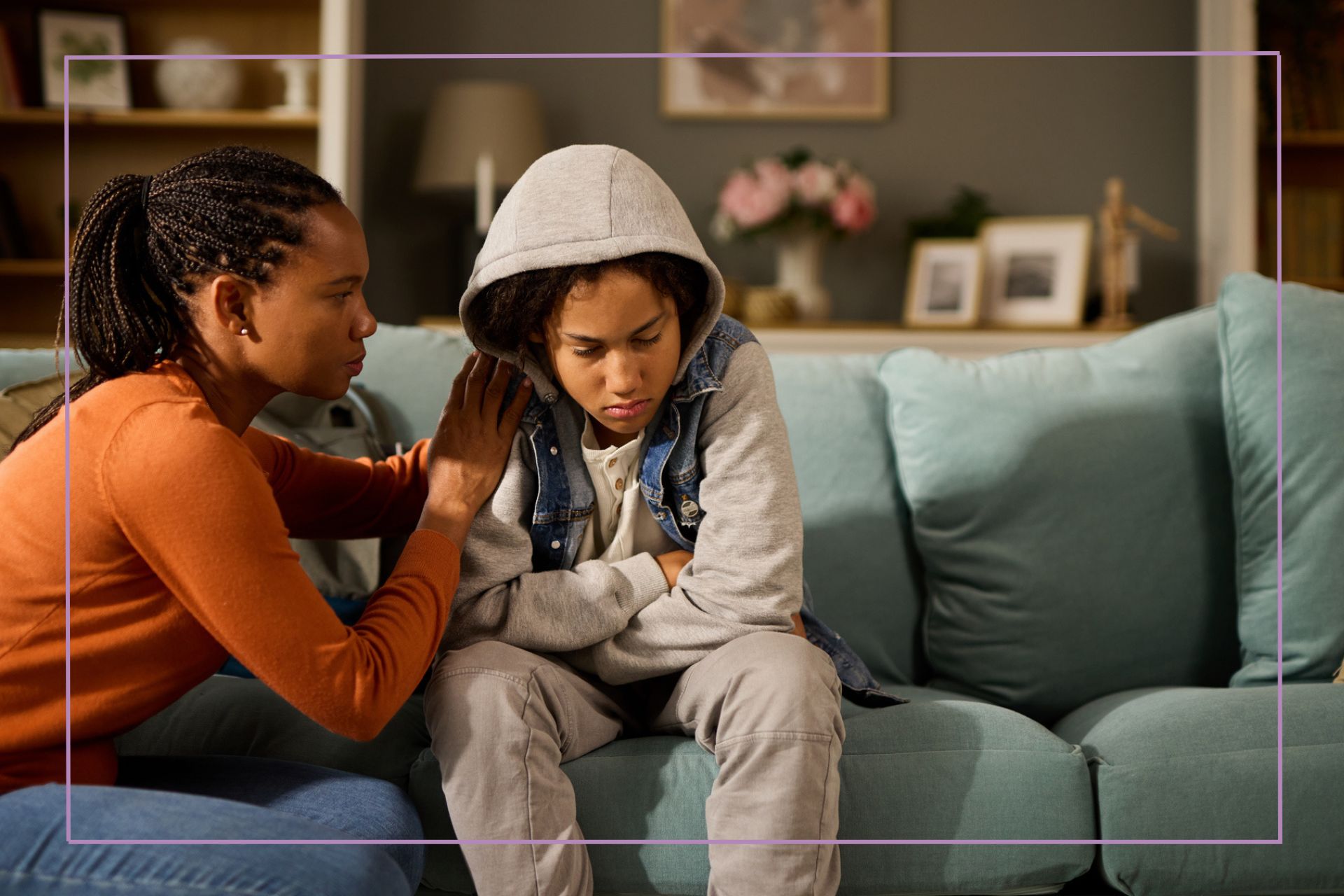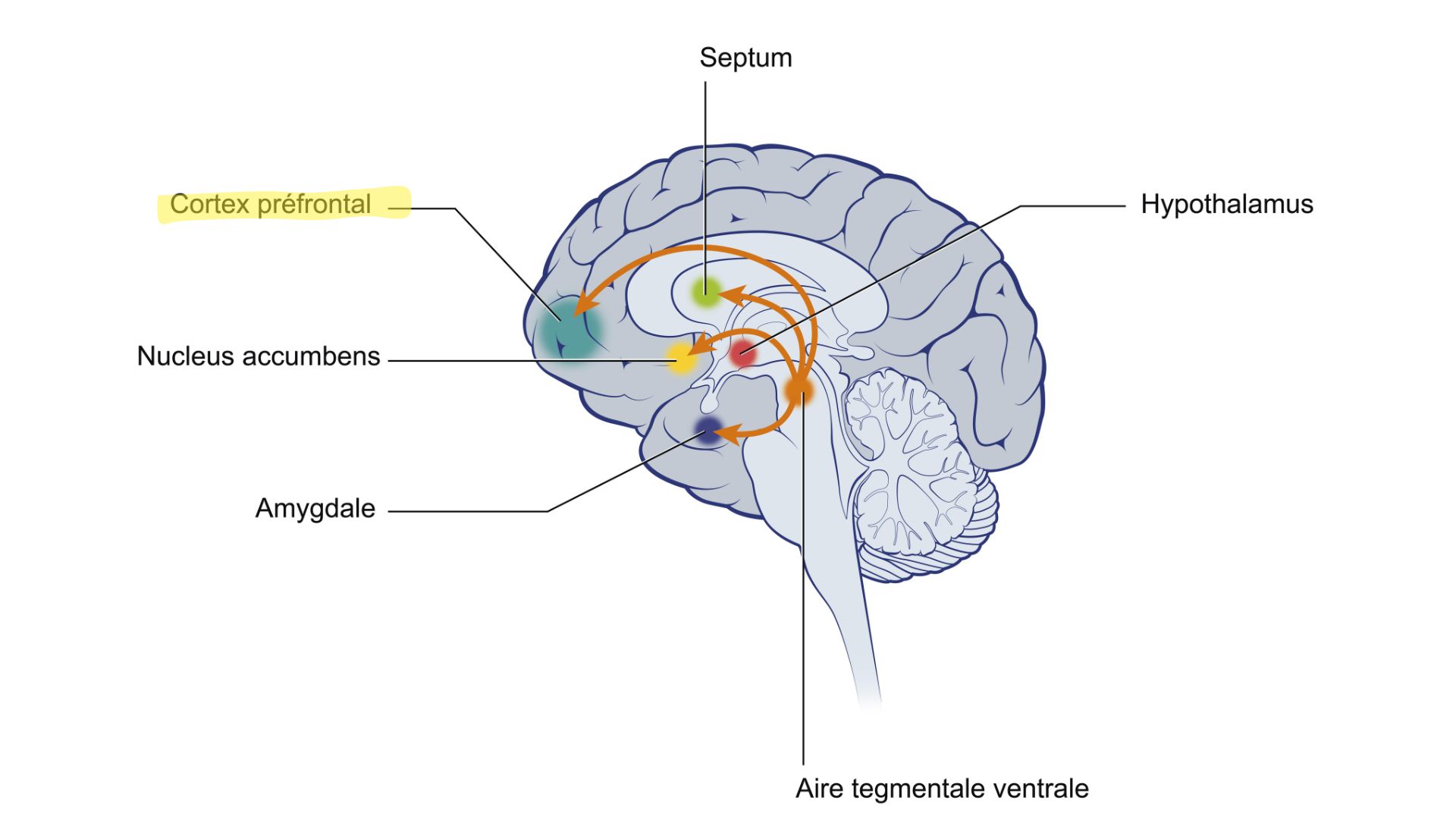Is your tween angry, entitled, and rude? Teenage expert reveals why this is happening earlier than you might expect (and it has nothing to do with hormones)
Plus 7 top tips to try that might help you and your family navigate this tricky time


Is your home peppered with yells of ‘I hate you!’, door slamming, eye-rolling, and constant back-chat? Good news: You’re not alone. These are the staple (and expected) behaviours of teens, but did you know that it's totally 'normal' for tweens - aged between 7 and 12 - to also exhibit this behaviour?
As a teen and tween expert and author I know that there is no denying that our tweens can act in ways we find difficult to deal with. We commonly blame hormones and screens for their angriness, but the out-of-control emotions are far more related to their brain development than anything else. The area of the brain responsible for emotion regulation, empathy and impulse control, the prefrontal cortex, is not fully developed until the late twenties, until then, we should expect behaviour that is more akin to that of a toddler tantrum, than adult self-control (that said, many adults struggle to control their emotions!).

Many adults believe that youth behaviour is out of control today, with far more disrespect and unruly behaviour displayed than in previous generations. Psychologists refer to this phenomenon as ‘kids these days’. In fact, according to a study, nearly half of parents of children between the ages of 6 and 18 feel that their offspring are disrespectful and entitled. The thing is, they’re wrong. Kids these days are some of the best behaved in recent history, and we just think they’re ungrateful, rude, disrespectful, and lazier than previous generations.
What else triggers the angriness and rudeness? Tweens and teens have so much to deal with today; curriculums at school are increasingly harder, with goalposts constantly being moved, while conversely arts, music and sport are being reduced. School discipline is increasingly harsh, with a constant emphasis on threats of sanctions should they step out of line. Those aged between 8 and 18 today have all lived through Covid and the implications of lockdown, meaning they have all missed socialising during important life transitions, such as the move to secondary school.
"It's not hormones.... the out-of-control emotions are more related to their brain development."
They worry about climate change and war and an increasing number (1 in 4) are growing up in poverty. Finally, our child and adolescent mental health services are underfunded, with waiting lists stretching into years in length. Life is tough today for our young people. They need our help and understanding far more than consequences and lectures, even – and especially – when their emotions are out of control.
7 ways to cope with disrespectful, angry, entitled behaviour:
- Remember that respect is earned, not demanded
- Respond to the underlying emotions, not words
- Try not to take things personally
- Avoid being triggered by your own adolescence
- Be their safe place
- Teach them how to regulate
- Check-in with them regularly
1. Respect is earned, not demanded
We may complain about our tweens and teens disrespecting us, but many of them feel disrespected by the grown-ups in their lives. The thing is, we can’t punish, bribe or shame them into respecting us; we have to earn their respect by being respectful towards them first. In short, we have to act towards them how we want them to behave towards us.
This may look like responding rather than reacting, such as pausing before replying calmly to a behaviour. I know this sounds so much easier than it sometimes feels, as our children have an innate way of triggering us emotionally and mentally. Try to recognise when you get prickly or your body stiffens with tension; this is a reaction, usually deep-seated. Try to breathe through this to find your response.
Parenting advice, hot topics, best buys and family finance tips delivered straight to your inbox.
2. Respond to the underlying emotions, not the words
It can be all too easy to focus on the specific words that our offspring say in the heat of the moment. Maybe they tell us they want us to die, or perhaps they swear at us, but the words - as hard as they are to hear - are just superficial symptoms of their underlying feelings. Their words are usually the first tell-tale sign when they don't feel good. Punishing them for disrespecting us prevents them from getting help with the real problems.
The next time your tween or teen says something hurtful, try leading with, “I can see you’re struggling with something; how can I help?.” This doesn’t mean you should be a verbal punching bag, you can say “I didn’t appreciate the way you spoke to me, please don’t say that again,” after you’ve had a discussion with them.
3. Try not to take things personally
Your child’s tricky behaviour is not about you. I promise they are not deliberately saying or doing certain things to wind you up. The simple fact is their behaviour likely has nothing to do with you; it’s a cry for help. They need help but don't have the developmental skills yet to link their feelings to words to articulate their needs.
Take a deep breath and remind yourself “this isn’t about me, it’s about them” the next time you feel enraged and offended.
4. Avoid being triggered by your own adolescence
We were all disrespected by adults in our lives when we were tweens and teens. We were shouted out and punished unnecessarily when our parents struggled to know what to say or do with us. When your own child is acting out of control, it can be all too easy to step back into the shoes of being in that same parent-child dynamic and you are likely conditioned to go into punishment and yelling mode as the parent, but you don’t have to. You can break the cycle. The first step is being aware of it and recognising that you can choose how to respond.
5. Be their safe place
Research shows us that tweens and teens who feel close to their parents, and not judged by them, are more likely to disclose their fears, worries and problems. Language, tone, body posture all fit into the 'non-judgemental' tool set, and being self-aware always helps. Check yourself on the tone you're using, your stance, whether your face is neutral - all these can be the difference between judgemental or non judgemental.
If our tweens and teens know that they can be their authentic selves with us and trust us to not jump in with punishments or telling off, then they are much more likely to open up to us and ask us for help when they’re struggling.
6. Teach them how to regulate
At all ages children look to us to learn how to behave. They learn how to regulate their emotions from watching us, and they borrow our ability to calm down when we hug them or speak kindly to them during moments of stress. If your tween or teen is particularly shouty and angry, it’s may be that these are traits that may need a little work on yourself too. Take a look at this YouTube video on how teach self-control.
7. Check in regularly
Don’t wait for your child to come to you with a problem or for things to come to a head before having a conversation with them; check in with them when things are calm. Finally, if your tween or teen wants to talk to you, listen – whatever time of day or night it is. Frustratingly most want to talk at midnight, when we’d rather be sleeping, but seizing the opportunity to talk when they want to is so important.
Raising tweens and teens today is exhausting work, and no parent is perfect. Everybody yells and struggles to control their own emotions at times, and that’s OK. Psychologists believe it’s better to have a ‘good enough’ parent than a perfect one. The next time you do screw up and join your child with their dysregulated behaviour, seize it as an opportunity to teach them how to apologise and make things right when they mess up. These times can feel like we’re failing as parents, but they are so crucial in helping our tweens and teens to become calm, respectful, and thoughtful individuals.
Here are five important things to talk to your teen about before they start dating, and what to do if your teenager is drawn to taking risks. Some parents are finding caring for their older children so difficult, they're taking 'teen-ternity' leave - we have everything you need to know about the term.

Sarah Ockwell-Smith is a mother of four young adults. She has a background in Psychology and clinical research and has also worked as an antenatal teacher and doula. Sarah has written fifteen childcare books, covering everything from newborns to teenagers, with a special emphasis on ‘gentle parenting’. Sarah regularly contributes to National TV and radio, including Good Morning Britain and BBC Radio 4 and 5, she has also written for national publications including The Guardian, The Express, The Daily Mail, The IPaper and The HuffPost. Sarah lives with her family, two rescue dogs, cats and chickens in North Essex. Sarah's newest book How to raise a teen is due to hit shelves July 4th 2024.